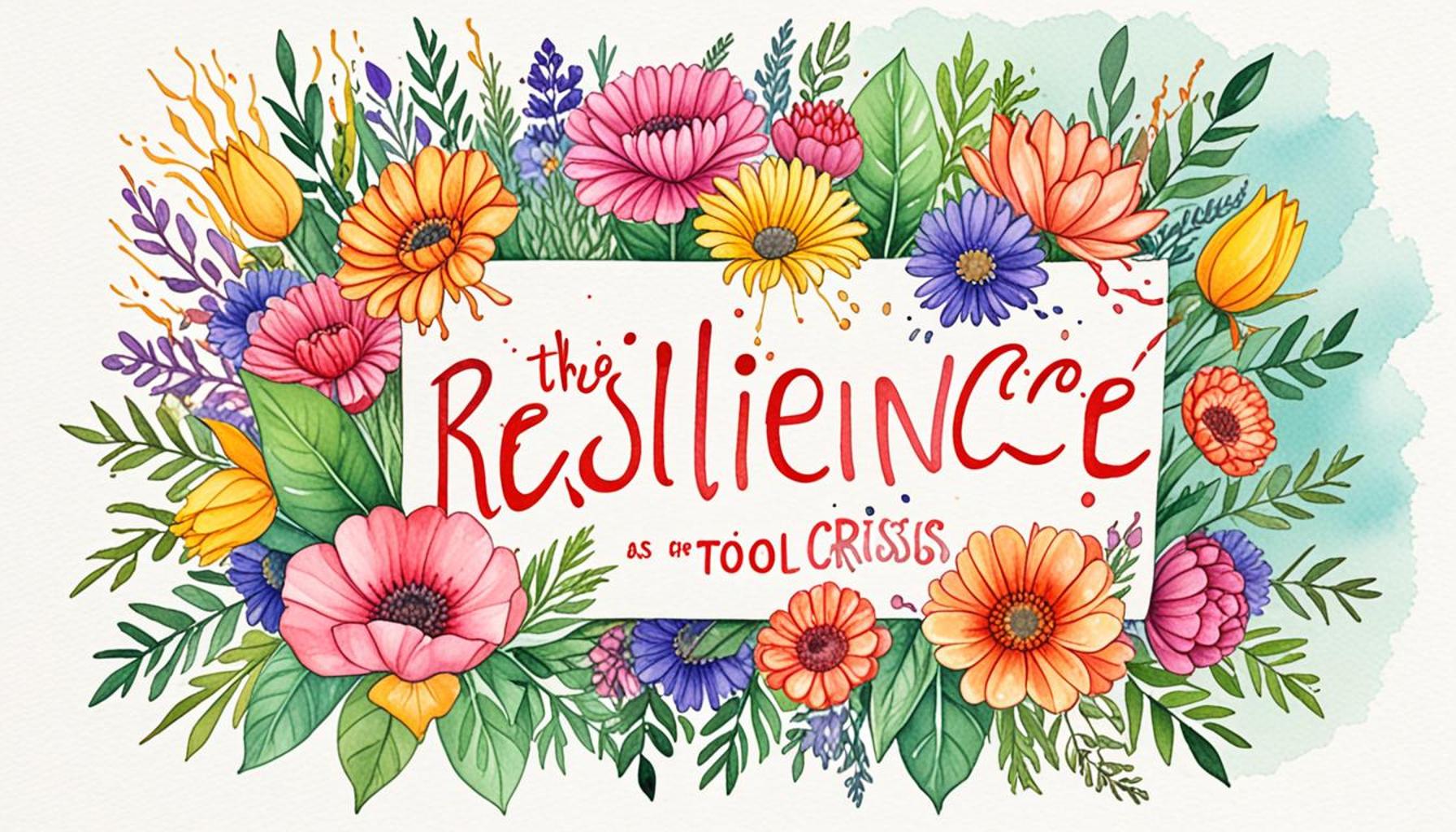Developing Resilience Through Affirmations: A Guide for Parents and Educators in Times of Change

The Importance of Resilience and Affirmations
In the modern landscape of rapid change and unpredictability, the ability to adapt and remain strong is more crucial than ever. This concept of resilience not only allows individuals to bounce back from challenges, but it also empowers them to thrive when faced with difficulties. For children in particular, this skill is essential, as they often encounter various pressures—academic expectations, social dynamics, and even familial challenges—that can be overwhelming. As parents and educators, there exists an opportunity to actively foster resilience through intentional practices.
One powerful method that can be employed is the use of affirmations. These are positive statements that individuals can repeat to themselves to reinforce a supportive mental framework. The practice of affirmations serves several important functions that are particularly beneficial for children:
- Boosts self-esteem: Children who regularly engage in positive self-affirmation foster a stronger belief in their abilities. For example, a child could say, “I am capable of achieving my goals,” which can lay the foundation for greater achievements.
- Encourages resilience: When faced with setbacks, such as poor grades or social rejection, affirmations like “I learn from my mistakes” can help shift focus from failure to growth, instilling a mindset that embraces challenges.
- Improves emotional health: By promoting positive self-talk, affirmations can serve as a buffer against anxiety and depression. For instance, a child might recite, “I am worthy of love and happiness,” reinforcing their sense of self-worth and emotional stability.
In Nigeria, the stakes are even higher. Children are often confronted with unique challenges such as economic instability, educational disparities, and sociocultural changes. The road to resilience can be bumpy, particularly in a landscape marked by these factors. However, parents and educators have the ability to transform these obstacles into opportunities for personal growth through the integration of affirmations into daily life.
Research and anecdotal evidence indicate that children who practice affirmations regularly exhibit greater psychological strength not only in school but also in their personal lives. For instance, schools in urban areas like Lagos have begun adopting programs centered on social-emotional learning, which include the use of affirmations. This has been shown to lead to improved academic performance, reduced behavioral problems, and overall better social interactions among peers.
This guide will explore effective ways to incorporate affirmations into everyday routines for both parents and educators. By embedding these positive statements into the fabric of children’s lives, we can equip the next generation to face challenges head-on, ultimately building a stronger and more resilient society.
ADDITIONAL INSIGHTS: Expand your understanding here
Implementing Affirmations in Daily Life
To cultivate resilience in children, integrating affirmations into their daily routine is essential. By weaving positive statements into everyday practices, parents and educators can create a nurturing environment that promotes emotional strength and self-belief. Consider the following approaches to effectively implement affirmations in your child’s life:
- Morning Rituals: Start each day with affirmations as part of a morning routine. This can include a simple exercise where children choose a statement that resonates with them, such as “I am strong” or “I can face today’s challenges.” This morning boost sets a positive tone for the day ahead.
- Affirmation Journals: Encourage children to maintain a journal dedicated to affirmations. They can write down things they appreciate about themselves or goals they wish to achieve. By reviewing this journal weekly, both parents and educators can help children reflect on their growth, reinforcing their progress and resilience.
- Visual Reminders: Create visual cues around the home or classroom featuring affirmations. Posters or sticky notes with inspiring phrases like “I am enough” or “Mistakes help me learn” can serve as constant reminders to instill a positive mindset.
- Mindfulness Practices: Incorporate mindfulness strategies, such as guided meditation or breathing exercises combined with affirmations. This practice not only calms the mind but also helps children internalize the affirmations, making them feel more personal and impactful.
- Community Involvement: Schools can establish a culture of affirmation through group activities that promote collective resilience. For instance, during school assemblies or classroom sessions, children can share their affirmations, creating an atmosphere that values positivity and mutual support.
In Nigeria, where children face distinct societal and cultural pressures, the power of affirmations becomes even more significant. For example, young learners often grapple with issues such as socio-economic disparities and familial expectations. By consciously fostering resilience through affirmations, parents and educators can provide a vital counterbalance, equipping children with the tools to navigate their world with confidence.
Additionally, research underscores the importance of a supportive network in reinforcing affirmations. Parents and educators should actively participate in this journey, modeling positive self-talk and demonstrating vulnerability in the face of challenges. When children observe their role models practicing affirmations, they feel empowered to do the same. This shared experience cultivates a sense of community and belonging, essential components of resilience.
As we delve further into this guide, remember that resilience is not only about recovering from adversity, but also about developing the capacity to thrive. By harnessing the transformative power of affirmations, we transition from simply teaching resilience to actively nurturing it through collective, everyday practices. The impact of this embrace can ripple through our society, producing individuals who are not only strong but also compassionate and connected.
| Category | Benefits |
|---|---|
| Emotional Well-being | Affirmations foster a positive mindset, helping children express feelings and understand their emotions better. |
| Coping Mechanism | Utilizing affirmations offers an effective strategy for handling stress and anxiety, especially during transitions. |
The journey of fostering resilience in children through affirmations is vital, especially for parents and educators navigating times of change. Emotional well-being is often the cornerstone of resilience. Engaging regularly with affirmations allows children to articulate their feelings and internalize positivity. This practice does not only enhance their emotional literacy but also cultivates a strong foundation for tackling life’s challenges.Moreover, affirmations serve as a powerful coping mechanism during stress-inducing periods. For example, when students face significant changes, such as moving to a new school or adjusting to new teaching styles, affirmations can minimize anxiety by shifting focus from fear to possibility. Parents can actively participate by guiding their children through personalized affirmations that address their specific fears and challenges, making them more relatable and effective. By embedding this practice in daily routines, resilience becomes a natural response to adversity, enriching their ability to thrive.
ADDITIONAL INSIGHTS: Expand your understanding here
The Science Behind Affirmations and Resilience
Understanding the psychological foundation of affirmations can significantly enhance their effectiveness in helping children build resilience. Research has shown that positive affirmations can actually alter brain chemistry, fostering a mindset that is open to growth and development. When children engage in repetitive positive self-talk, they are more likely to reduce stress and anxiety, paving the way for improved mental health. A study published in the Journal of Personality and Social Psychology found that self-affirmation can strengthen the brain’s capacity to manage challenges and setbacks, thereby enhancing overall resilience.
In the context of Nigerian society, where mental health issues are on the rise yet often stigmatized, the implementation of affirmations can emerge as a practical solution. Many children grow up in environments that may inadvertently undermine their self-esteem, leading to a cycle of negative thinking. According to the World Health Organization, mental disorders among children in Nigeria are a growing concern, highlighting the pressing need for proactive interventions. By integrating affirmations into daily life, parents and educators can combat these challenges effectively, helping children develop a more resilient mindset.
Tailoring Affirmations to Individual Needs
While the concept of affirmations may seem straightforward, it is crucial to tailor them to the specific experiences and challenges children face. Individualized affirmations can be more effective than generic statements. For example, a child struggling with academic pressure might benefit from affirmations such as, “I learn from my mistakes” or “I am capable of overcoming challenges in my studies.” Similarly, a child facing social anxiety could use the affirmation, “I am worthy of friendship” to bolster their confidence in social situations.
Engaging children in the crafting of their own affirmations can also deepen their connection to these positive statements. A creative approach involves asking them to reflect on their unique experiences and feelings. Parents and educators can facilitate this process by posing questions like, “What do you like about yourself?” or “What challenges would you like to overcome?” This not only empowers children but also reinforces their ownership of the affirmations, making them more likely to internalize and adopt these positive messages.
Creating a Culture of Resilience in Schools and Homes
Fostering a culture of resilience goes beyond individual practices; it requires a holistic approach that includes collaboration among parents, educators, and the community. Schools in Nigeria can implement resilience programs that focus on social-emotional learning, incorporating affirmations into their curricula. Initiatives like peer mentorship, where older students share affirmations and experiences with younger ones, can create a supportive network that fosters belonging and understanding.
Communities can play a pivotal role in this journey. Local organizations can host workshops for parents and educators to learn about the importance of affirmations and develop strategies to incorporate them into everyday interactions with children. Such collaboration helps build a resilient community that collectively nurtures the emotional well-being of its youth.
Moreover, integrating affirmations into traditional cultural practices can resonate deeply with children. Emphasizing values such as communal support and resilience found in Nigerian folklore can add relevance to the affirmations. By celebrating cultural heritage while promoting positive self-affirmation, a new generation can emerge, equipped not only with resilience but also a strong sense of identity.
YOU MAY ALSO LIKE: Read read another article
Conclusion
As we navigate the complexities of today’s rapidly changing world, the integration of affirmations into the lives of children serves as a powerful tool for developing resilience. Parents and educators have a unique opportunity to foster a culture of positive self-regard and emotional strength, essential for equipping children to face challenges head-on. By promoting tailored affirmations that reflect each child’s unique experiences and struggles, we not only pave the way for individual growth but also contribute to a collective effort toward enhancing the mental health landscape in Nigeria.
The research underlines that positive affirmations can reshape brain chemistry and cultivate a mindset ready to embrace growth. This is especially crucial in Nigeria, where mental health issues increasingly threaten the well-being of our youth. Creating a supportive environment—be it in homes or schools—by incorporating resilience strategies like affirmations ultimately helps children recognize their worth and capabilities. This is vital, as it empowers them to stand tall in the face of adversity.
Furthermore, building partnerships within communities to emphasize resilience-focused initiatives and cultural affirmation practices can resonate deeply with children, reinforcing both their emotional and cultural identities. By embedding affirmations into educational frameworks and community support systems, we can cultivate a new generation that is not only resilient but also proud of who they are.
In conclusion, let us embrace the journey of fortifying our children with the resilience they need. By investing in affirmations and nurturing positive beliefs, we are laying the foundation for a brighter future filled with confident, empowered, and resilient individuals.


